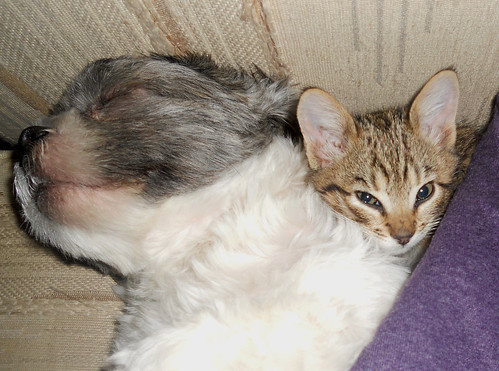|
Are you a cat parent struggling with your furry friend's spraying habits? Understanding and resolving this behavior is crucial for a harmonious home. This guide offers effective, humane strategies to deter your cat from spraying and encourage litter box use, ensuring a happy, healthy environment for both of you. Understanding Why Cats Spray: Spraying is a natural behavior for cats, often linked to marking territory, stress, or health issues. Identifying the cause is the first step to addressing it. Is your cat feeling anxious? Are there changes in your home environment? A visit to the vet can rule out any medical concerns. 1. Create a Comforting Environment: Cats thrive in a stable environment. Minimize stress by maintaining a consistent routine and providing a safe, quiet space for your cat. Comforting items like a favorite blanket or toy can also help. 2. Clean Soiled Areas Thoroughly: Cats are likely to respray areas with lingering odors. Clean any sprayed spots with an enzyme cleaner specifically designed to neutralize pet odors. This reduces the chance of repeat incidents. 3. Use Feline Pheromone Diffusers: Pheromone diffusers mimic the natural pheromones of cats, creating a calming effect. Placing these around your home can help reduce stress-related spraying. 4. Positive Reinforcement: When your cat uses the litter box, offer praise or a treat. Positive reinforcement encourages repeat behavior. Avoid punishment for spraying, as it can increase stress and worsen the problem. 5. Provide Multiple Litter Boxes: If you have more than one cat, ensure each has its litter box plus one extra. Keep these boxes in quiet, accessible locations and clean them regularly. 6. Consult a Veterinarian or Animal Behaviorist: For persistent issues, professional advice can be invaluable. They can help uncover potential medical issues and offer tailored strategies based on your cat’s specific needs. Conclusion: Dealing with a cat that sprays can be challenging, but with patience and the right approach, you can guide them back to good litter box habits. Remember, understanding and empathy are key in this process. Comment below to share your success stories or tips on how you guided your cat back to the litter box using these natural methods!
0 Comments
If your cat is pregnant or you’ve come upon a foster or stray cat who may be expecting, you might wonder how long cats stay pregnant. How long cats are pregnant can vary, but is usually about the same general average. Learn how long your cat should stay pregnant for, as well as how to help your cat get through all five stages of cat pregnancy. How to Tell When Your Cat Got Pregnant Before knowing how long your female cat should stay pregnant, you first need to know when the pregnancy occurred. You can figure this out in multiple ways. If your cat was purposefully mated (not recommended unless you are a professional cat breeder), then you should know the time period in which your cat became impregnated. Other ways to tell involve knowing when your cat was in heat and/or when she may have mated without your knowledge or by accident. If you are observant of your cat, these will be obvious. Queen (female) cats can actually be impregnated by multiple tomcats (males) at the same time if all of them were successfully mated with during the same heat cycle. Therefore, cats born in the same litter can potentially have different fathers. Should I Mate My Cat? Most cities have laws requiring a female cat to be spayed (and a male cat neutered) once they reach a certain age, but there are exceptions or instances in which this doesn’t happen, such as an illness that guards against spaying, the cat is not yet old enough, or you came upon an already-pregnant stray, and so on. Also, licensed professional breeders are able to mate cats. Cats can get pregnant as early as 4 months of age, even though many don‘t get their heat cycles until 6 months and are not spayed until this stage. (Scroll to keep reading) How Long Are Cats Pregnant For? Assuming you know when your cat became pregnant, she should be pregnant for about 58 to 72 days on average. Different experts will give different dates. This is the average between those dates. If you are unsure, pay attention to the five stages of cat labor to estimate when your cat might deliver and how many days might be left in your cat’s pregnancy. A pregnant cat should also be taken to the vet to ensure a healthy pregnancy. The vet will be able to tell you a more accurate number, regarding when your cat might deliver. Cat Pregnancy Stage One: Fertilization This is the stage when your queen successfully mates with one or more tomcats. You may or may not be aware of the exact timing of this stage, depending upon the circumstance. Spaying and neutering cats can help responsible pet parents take as much control over this situation as possible. As soon as your cat is 6 months of age, she should be spayed. But if you’re learning about how long cats are pregnant, you may already have missed this window and have a pregnant cat. Cat Pregnancy Stage Two: Early Cat Pregnancy Stage two of your cat’s pregnancy is when you should notice there is something going on with your female cat. Your queen may experience morning sickness during her pregnancy and this is the stage when that would appear. You may also visibly notice her appetite increasing after her nausea subsides. It is perfectly normal for her to eat less in the very beginning when her morning sickness is at its worst. By the third week of pregnancy, this should give way to that appetite increase. It is also during this third week that you might notice lumps (kittens) forming and be able to feel them. Cat Pregnancy Stage Three: Middle Cat Pregnancy During the middle stage of a cat’s pregnancy (week 4 and on), she will start to gain weight much more visibly. By the end of this stage, it will be difficult not to tell she is expecting a litter of kittens. They will be moving around and you can feel (and even see) them do it! Your cat’s vet may suggest a radiographic x-ray or an ultrasound to take a look at the kittens, as well as to count how many there are. The vet will know which of these is best for your cat and for her unique situation. (Scroll to keep reading) Cat Pregnancy Stage Four: Pre-Labor When estimating how long your cat should be pregnant, it is also important to know the signs of pre-labor. This will help ensure you and your cat are prepared when she delivers her kittens. In the week prior to active labor, your cat will start looking for hiding places to have her kittens. A pregnant cat can be picky on where she has her babies, so don’t be upset if she doesn’t choose the spot you created. It will be easier if she does, but is not required. The most important thing is that your pregnant cat is happy and calm during labor. Watch where she goes and try to place nesting boxes in those places. In telling how long your cat will be pregnant, you can also observe your cat’s appetite. She may stop eating a couple days prior to labor. This should alert you to how many days are left in your cat’s pregnancy. Cat Pregnancy Stage Five: Labor & Delivery This is the stage when your cat is in active labor and birthing her kittens. You may or may not be present for this, as many cats prefer to do this in hiding. If your cat wants help, she will ask you by coming to you or yowling for you during. In the instance that you get to witness this, signs of labor in your cat include licking genitals, pacing, breathing hard, noises of discomfort, acting anxious, and more. It should be obvious what is going on, but if not, it will be when the first kitten arrives! (Scroll to keep reading) Preparing Your Cat for the Birth of Kittens You should begin preparing your cat for labor and delivery around the early stages of cat pregnancy to be sure your cat knows where to potentially go. If you do not know when your cat became pregnant, but you are seeing the signs, it’s best to help your cat prepare for the birth early. You should also take your cat to the vet right away to make sure her and her kittens are doing well. Prep your cat with a safe hiding place equipped with a comfy box and soft blankets. She may or may not choose your spot but you can try to convince her by showing her as many times as necessary and staying away from the spot so that she knows she is safe. Most cats prefer to labor alone. However, when the time comes, if she does want you to help, it will be obvious. You will also need some emergency birthing supplies, as well as your vet’s phone number handy, in case of emergency. In most cases, your queen should be able to handle everything herself. But in the event she does not, ask your vet for a cat-safe antiseptic. You should also have scissors for the umbilical cords, surgical gloves for any handling of the mom or kittens during labor delivery, dental floss for ties, sterile eye-droppers in case aspiration of eyes, nose, and mouth is needed, clean towels, and kitten milk replacer (just in case your mom cat is unable to nurse the babies or refuses to) with kitten bottles. Once you have figured out how long your cat should be pregnant, there is some prepping to do. You should also buy extra food! Beyond the preparation and getting your cat to the vet, once your pregnant cat has her babies, enjoy! Also, be sure to talk to your vet about proper kitten care and rehoming procedures. You should now know a bit more about how long your cat will be pregnant, the stages of her pregnancy, and what to expect. Now, relax, get to the vet, and enjoy loving on your pregnant queen! I originally wrote and published a version of this here on 9/4/2019 that has since been removed and rewritten to create this updated version.
When you hear organic, most people realize it’s probably the best choice. But do you know why your pet’s food should be organic? Here’s just a few of many reasons.
Helps Keep Your Pet Healthy Organic pet food generally contains higher-quality proteins that your pet needs to thrive. Instead of additives and growth hormones, they are more likely to have only the healthy nutrients your pet should be eating regularly. Keeping your pet healthy means he or she will probably live a much longer, happier life. It Tastes Better In order to be effective, your pet’s food has to taste good or they won’t eat it. Many pets enjoy the taste of organic foods much better than the alternative, as it’s closer to what they would eat in the wild. It’s More Cost-Effective Buying organic food now can save you money later. Healthier pets are more likely to have less vet visits and not as many health issues. You Should Know What Your Pet is Eating Organic pet food labels are often simpler to read with only all-natural ingredients. This means you can tell what your pet is getting by reading the label and avoiding hard-to-pronounce (and digest) unhealthy additives.  Image (c) Lyn Lomasi; All Rights Reserved Image (c) Lyn Lomasi; All Rights Reserved You're perusing a magazine or website and notice they are holding a contest. Should you enter your pet in a free photo contest? As a pet parent, I've seen these offered many times. Recently, on the advice of a friend, I was reminded to read the fine print and dig deeper before entering my pets into any contests. How do you know if the contest is really the best thing for you and your pet? Consider the source. Does the company pass a scam test? How long have they been around? What is the company's purpose? While contests from smaller companies could certainly be legitimate, if you can find no information on the company, that could be a red flag. Do you really want your pet's photo in the hands of a company who has no visible track record? Look over the rules. Is it clearly laid out what will happen to the photos during and after the contest? Make sure you are comfortable with what's stated. If there are no rules posted, it's probably a better idea not to risk it. You have no idea what they have planned for your pet's photo. The rules need to be clear and they need to be in easy-to-find location. If I can't agree with the rules or even fond them, you can guarantee that my pet's photo is not getting sent to anyone. What is the prize? Check out all of the prize offerings and make sure it is something you and your pet will benefit from. For instance, your pet will not gain anything from a prize consisting of food that he does not eat. If the prize offers stardom for your pet, will it be compensated? Starring in ads, commercials, or magazines should always be compensated. If that is the only prize your pet will receive in the photo contest, think about the company's motives. They may simply be using the contest as a way to avoid paying for pet models and actors. If our pets are photo contest winners, I would want them to reap the most benefits, not me or the contest host. Does your pet like posing? If your pet is not comfortable posing for pictures, don't stress him out just to enter a contest. However, if your pet enjoys the practice, let her soak up the attention of the camera. Remember to have plenty of water, nourishment, and entertainment available if the photo shoot will take a considerable amount of time. Make posing for the photo contest a fun event for your pet. If you just have fun with your pet and don't force it, the experience will be more enjoyable for your both. The hamsters in our family enjoy posing for the camera. That's probably due to the fact that we just let them do their thing and snap away, instead of trying to force them into posing a particular way. Is it something your pet should be paid for? This can be a huge deal-breaker. As mentioned above, some companies hold pet photo contests simply to create PR buzz. If the company is trying to cut down modeling and acting costs by having a contest, is this really a company you'd want your pet working for? If my pet is going to star in a commercial, on a website, in a magazine, or anywhere else, I want them to be compensated fairly. Just like humans should not work for free, neither should animals. They should be fairly rewarded for their efforts. How many photos will 'win'? If you are entering a contest, the number of winners should be much lower than the number of entrants. If everyone who enters is a winner, the contest is likely not very legitimate. Also, watch for companies who ask you to purchase the items your pet is featured in once they win the contest. If your pet is a contest winner, you should not have to pay any money for any reason. Government taxes on a prize are legitimate. But if you are asked to pay anything other than that, you may be the victim of a pet photo contest scam. When entering your pet into a photo contest, it's always important to check all the facts first. While it can be exciting and you want to see your pet's name up in lights, there are many factors to consider first. Choose wisely and your pet has a better chance of something worthwhile should she end up a winner. Jump in and you may end up dealing with more than you bargained for. *I originally published this via Yahoo Contributor Network by Dennis Townsend, Contributing Writer Well, after addressing happy dogs, I must say that I totally forgot about those of you who have cats. I must beg your forgiveness and with that said, let me relay some information I have gathered about the feline of the family. Believe it or not, I myself had a total of 6 cats, mostly because my ex-wife insisted on it so most of the knowledge I have about cats comes from personal experience.
Cats are very finicky, and to keep their attention, you had better bring your “A” game to the table. When my cats were kittens, they use to love chasing a ball of cellophane. I would ball it up and throw it, the kitten would chase it, and then become amazed when it slowly begin to expand. I spent hours playing that game, and the kitten never seemed to get bored. Also, I would get out a ball of yarn, roll it across the floor, and watch the fun when, as it began to unravel, it would turn into the toy that kept on giving. The real fun is when you have a toy that moves around while the kitten intensely watches it, and then it stops. That’s when the feline would turn on the “stalking mode” and try to sneak up on the toy. Then the toy would move, and the kitten would jump a mile in the air. Now that same type of toy works with adult cats also. All cats are predators, and that type of toy allows them to use the same instincts that they would use in the wild to stalk prey. I have a bird feeder in my backyard, and many a time I have seen cats sneaking up on the birds that are on the ground eating spilled seed. Cats appreciate an interesting toy just as much as dogs do, and just about every cat loves a “kitty condo”, which often has several elevations and platforms to climb and sit on. Vertical hiding places and sanctuaries are very important to cats since this is what they look for in the wild. Try to find a condo that’s upholstered in a kneadable fabric, or carpet remnant. And if your cat still has his or her claws, you may want to invest in a good “scratching post,” if you want to save your furniture. If you’re handy with some minor tools and material, you can make these things at home. Especially since some of the condo’s that they sell in pet stores could cost you as much as $100 on up. Now some other toys you can get is a feline version of the mouse exercise wheel which you can get at Catwheelcompany.com. Some other “homemade toys” you can make includes toilet paper rolls filled with catnip or treats, and wands made out of rulers, rubber bands, and feathers. There are countless thing you can get to entertain the feline in you home, or outside if you let your cat roam the wilds of the outside, and as I said for dogs, a playful cat is a healthy happy cat. Have fun. PONCHO33 Cat photo courtesy of Wikimedia Commons |
Pawsitive
|
- Brand Shamans
- Brand Healing
- Inner Healing
-
INTENT-SIVE NATURE
- Content & Brand Elevation
- Healing Jewelry & Talismans
- Bath, Beauty, & Self-Care
- Healing Sessions
- Rituals, Herbs, & Altar Supplies
- Gawwwdess Baby Boutique
- Soul Flame Gifts
- Yoga & Meditation
- Books & Media
- Education & Homeschool Resources
- Home, RV, & Decor
- Clothing
- Pets
- Custom Orders
- Monthly Subscription Boxes
- October Festivals
- FLOW-Key Parenting
- About & Contact
- RV, Nature, & Travel Shamans
- Souls Within
- Life & Home
- Heart 'N Mind Homeschool
- The Homeschooling Mommy
- Books & Authors
- Speak Up!
- Pawsitive Pet Parenting
- Manifesterz
- Gifts In Minutes
- Brand Shamans
- Brand Healing
- Inner Healing
-
INTENT-SIVE NATURE
- Content & Brand Elevation
- Healing Jewelry & Talismans
- Bath, Beauty, & Self-Care
- Healing Sessions
- Rituals, Herbs, & Altar Supplies
- Gawwwdess Baby Boutique
- Soul Flame Gifts
- Yoga & Meditation
- Books & Media
- Education & Homeschool Resources
- Home, RV, & Decor
- Clothing
- Pets
- Custom Orders
- Monthly Subscription Boxes
- October Festivals
- FLOW-Key Parenting
- About & Contact
- RV, Nature, & Travel Shamans
- Souls Within
- Life & Home
- Heart 'N Mind Homeschool
- The Homeschooling Mommy
- Books & Authors
- Speak Up!
- Pawsitive Pet Parenting
- Manifesterz
- Gifts In Minutes












 RSS Feed
RSS Feed



